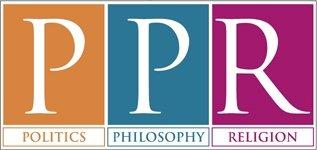Rationale and Research Context
In light of its ongoing global proliferation, religious diversity is an increasingly popular subject of academic study in various parts of the world. To date, however, there has been relatively little investigation of how the practices and processes of religious diversity are unfolding within the modern and modernising contexts of the BRIC nations (i.e. Brazil, Russia, India, and China).
Together, the BRIC nations comprise approximately 40% of the world’s population, cover more than 25% of its populated land mass and are responsible for 27% of global GDP. As they increasingly come into contact with the contemporary dynamics of globalising modernity, each of these countries is experiencing a range of macro-structural, institutional and micro-social developments which combine to engender an ongoing growth in the kinds and amounts of religious diversity. Despite their growing geo-political status and progressive theoretical significance for understanding the changing world in which we live, the recent boom in religious diversity studies has virtually bypassed the BRIC nations.
Drawing upon the expertise of academics and stakeholders intimately associated with the respective contexts of the BRIC nations and the UK, this project advances current understanding by adding a much needed, though till now relatively neglected, dimension to contemporary appreciations of religious diversity’s character and consequences for modern existence.
Aims and Objectives
In light of its rationale and research context, this project aims to:
- advance existing discussions and stimulate new debate in respect of academic understandings and public enactments of religious diversity through the collaborative opportunities and exchange of ideas facilitated by the international research network;
- cross boundaries by studying, comparing and contrasting religious diversity in the UK and BRIC nations through international, cross-institutional and multidisciplinary collaboration between established scholars, new researchers and relevant stakeholders;
- draw upon participants’ combined experience of different cultures and parts of the world to further knowledge and understanding of religious diversity, not least through its focus upon BRIC and UK experiences, transnational processes and dynamic forces of globalising modernity;
- forge strong and lasting collaborations between the individuals and institutions involved in the research network.
Theoretical and Methodological Advances
Drawing on face-to-face events and mediated interactions, the network will advance theoretical understandings of religious diversity by interrogating current definitions, dominant assumptions and prevailing interpretations in light of comparisons and contrasts made both between the UK and BRIC contexts and among the BRIC nations themselves.
The network will also reflect upon the strengths, limitations and relevance of popular theoretical models and analytical frameworks (e.g. market competition vs state regulation; secularisation vs sacralisation; multiculturalism vs assimilation; security vs freedom; order vs anomie; universalism vs particularism) for understanding religious diversity as it plays out in both non-western and western contexts.
As well as exploring their respective national manifestations and transnational profiles, the network will identify and discuss the different economic-political processes and socio-cultural dynamics which variously give rise to, sustain, promote or hinder religious diversity.
Methodological issues will also be addressed by the network, not least in respect of how different types of data pertaining to religious diversity (e.g. kinds and amounts) might best be acquired and analysed. The network will also explore the pertinence and utility of different ways of empirically investigating religious diversity relative to the varying character of BRIC and UK contexts.
Funded by:

| Home | Project | People | Activities | Resources | Contact |

